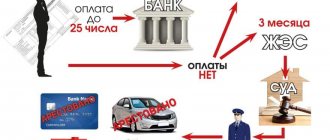Any citizen can file a complaint with the Federal Tax Service if he discovers that tax legislation has been violated, as well as in some cases the Code of Administrative Offenses and the Criminal Code of the Russian Federation. You can complain about the inaction of the tax authorities, about entrepreneurs operating without a cash register, about the decision on an audit conducted by the Federal Tax Service, etc. The appeal must be made in writing. In this article we will look at how to file a complaint with the tax office about illegal business.
- Form and sample
- Free download
- Online viewing
- Expert tested
FILES
How to complain to the tax office about an apartment landlord in 2021
The apartment owner has the right to dispose of his residential property at his own discretion. He can sell it, exchange it, leave it as an inheritance, or rent it out.
The main thing is that these actions do not go beyond the law and comply with the rules for the use of housing facilities. Renting out housing is a common practice, thanks to which owners have a good monthly family income.
By law, the transaction must be formalized by an appropriate agreement. But in most cases, there is illegal renting, when an apartment is rented without an agreement and payment of tax obligations.
Residents of other apartments know that neighbors rent out their apartment to strangers for rent, but do not report this incident as long as the tenants are quiet and do not interfere.
If noisy, sometimes inappropriate people settle nearby, violating the regime of silence, not maintaining order and cleanliness in the territory, there is immediately a desire to complain about the illegal rental of living space.
Someone is filing a complaint with the district police officer against the tenants. But the violator is also the landlord who avoids paying taxes on his income. How to complain to the tax office about an apartment landlord? What types of penalties are provided for those who enrich themselves through illegal rental of real estate and tax evasion?
Violation of living conditions
The usual practice is to rent out housing. At the same time, property owners prefer not to pay taxes. As a result, dubious individuals act as tenants, increasing the crime situation in an apartment building by using the living space for entertainment.
Recently, apartments have been rented out on a daily or even hourly basis. This causes additional concern among neighbors, for whom the noise prevents them from properly resting after a working day. In such a situation, there are several ways to restore order in the house.
For example:
- contribute to holding the owner of such an apartment accountable for tax evasion. However, there are difficulties here. Only the tenant can testify about the amount of money paid for renting housing. Neighbors can call a local police officer, who has the right to talk with the owner and tenants;
- If migrants act as employers, it is much easier to bring them to order. An application is written to the migration service, which has the right to check compliance with migration legislation. If violations are detected, the apartment owner will face a substantial fine.
Please note! Short-term rental of housing is a difficult fact to prove. However, if you set an appropriate goal for yourself, the result will not keep you waiting long.
How to inform the tax office about the renting of an apartment by neighbors
Cases of illegal rental of apartments are far from uncommon - many owners of “extra” living space do not want to reduce their profits by paying taxes to the state treasury. How to inform the tax office about the rental of an apartment by neighbors, where to complain if the tenants are causing trouble?
Is it possible to rent out a room without the consent of the neighbors?
Do I need to obtain permission from neighbors when planning to rent out an apartment for daily or long-term rent? If it is in state (municipal) ownership, then subletting is not prohibited by law (clause 2, clause 1, article 67 of the Housing Code of the Russian Federation), but the tenant must first obtain written permission from all neighbors registered in the apartment, and then issue a written contacting the landlord (in accordance with Article 76 of the Housing Code of the Russian Federation, the decision on the possibility of subletting is made by the state/municipal body).
Rental legislation
According to the Civil Code and Housing Code of the Russian Federation, when renting out housing, it is necessary to draw up an agreement with the tenant (if the apartment is rented by an individual) or with the tenant (if it is a legal entity). The correctness of the document's execution, including terminology (landlord/tenant, landlord/tenant), influences whether it will be recognized by the court as valid in the event of a conflict situation. The contract is concluded for any period (starting from several hours). The document is not subject to state registration if the lease duration is less than 1 year . When concluding an agreement for a period of one year or more, it is required (Article 651 of the Civil Code of the Russian Federation).
Landlords and renters receive payment for the provision of real estate (the law requires a receipt for the transfer of funds indicating the payment period, amount, passport details of the tenant, signature of the owner of the living space). They are required to pay tax on their income, the amount of which depends on the legal status of the owner. For individuals (citizens of the Russian Federation) it is 13% , for foreigners – 30% , for individual entrepreneurs (according to the simplified system) – 6% . If an individual entrepreneur issues a patent, he will also pay 6% , but the estimated income is taken into account (the cost of the patent is tied to the market price of the apartment).
Punishment for non-payment of taxes
Non-payment of taxes is punishable by fines, and in case of malicious violation of the law and concealment of significant income (if for 3 years the amount of unpaid taxes exceeded 900 thousand rubles ), the punishment may be imprisonment for up to 3 years (Article 198 of the Criminal Code of the Russian Federation).
Late submission of the declaration or its absence
5% of the tax amount for each month of delay (at least 1 thousand , but not more than 30% ).
20% (if the tax base is understated) or 40% of the amount of tax unpaid to the state treasury
There is a statute of limitations. If taxes have not been paid for many years, then they can be collected by law only for the last 3 years .
How to fight?
Theoretically, the tax inspectorate can become interested in any citizen by making a request to the bank about the income he receives and correlating it with information about official wages. In practice, such actions are possible only if, due to some illegal actions, a specific person is included in the development. It makes no sense to wait for the tax authorities to “find out” your neighbor, unless he gives himself away, for example, by requesting a tax deduction for the purchased apartment (if the official level of income does not correspond to the expensive acquisition, this will raise questions). If there is a suspicion of dishonesty of a neighboring landlord, residents of neighboring apartments can complain to the tax office.
How to prove that an apartment is for rent?
It is quite difficult to prove that an apartment is rented illegally and the citizen does not pay taxes. One hundred percent proof will only be the testimony of the tenant (tenant) himself and his presentation of receipts indicating that the owner has received money for rent. In practice this happens very rarely. Only isolated cases are recorded when tenants file a complaint about the landlord’s failure to fulfill his obligations (for example, the landlord has the habit of visiting an apartment in the absence of residents). If an appeal is recorded, and the tax authorities discover non-payment of taxes, an audit will be initiated with all the ensuing consequences.
There is a chance to prove the fact of renting out an apartment for a short-term rental if you install a video camera and record the frequent changes of tenants. The registration will also help if the housing is occupied by migrants who came to work.
In response to the received signal, the tax authorities will send the citizen a notification about the need to pay taxes if the apartment is rented (this is more of a warning than a guide to action, because there is no evidence).
How to report to the tax office?
You can inform the tax office that tenants are renting housing without a contract:
- by calling the helpline (regional number) - messages are checked, and measures are taken based on identified facts of violation of tax legislation;
- by using the “signal information” service on the Federal Tax Service website, intended for reporting non-payment of taxes;
- by sending a letter by mail (you can determine the details of the Federal Tax Service on the page service.nalog.ru/addrno.do).
Where else should you turn if your neighbors are renting out an apartment?
A rented apartment means not only unfulfilled tax obligations, but also a serious inconvenience for neighbors. Often temporary residents behave inappropriately - they make noise, bring suspicious guests, play music loudly, leave trash on the landing. This is not conducive to maintaining good neighborly relations. What to do and where to go?
Negotiations with the owner and tenants
At the first stage, it is worth talking with the tenants, expressing your complaints and trying to rein them in. It is better to act collectively, asking for support from other neighbors who are also being disturbed by temporary residents. If there is no result, the next step is to contact the property owner. It will be more difficult to ignore the landlord, because he will threaten to evict you. If a change of location is not part of the employers’ plans, then they will still have to listen to the comments.
Complaint to the district police officer
If the tenants are making noise, swearing, fighting, then you need to contact the local police officer (in case of repeated episodes) or call the police (in case of a violation of public order). The police must respond to a call within 1 hour (be sure to write down your call number). If this does not happen, then when you call again, you need to warn the duty officer that if there is no response to the appeal, a statement will be filed with the prosecutor's office about the inaction of the police.
The district police officer is given 10-30 days to consider the complaint ( No. 59-FZ of May 2, 2006), so a quick response to ongoing violations cannot be expected from him.
Rospotrebnadzor and Management Company
If temporary residents damage common property, do not comply with the rules of living in an apartment building, worsen the sanitary and epidemiological situation in the entrance, regularly flood the lower floor, or create fire hazards, then complaints should be sent to:
- Managing organization – consideration of a written application will take up to 10 days (applicants do not incur any costs);
- Rospotrebnadzor - no state fee is charged, the review takes about 30 days (the period may be extended, of which the applicant is notified additionally).
In both cases, anonymous requests are not allowed. The application must be submitted in person or sent by mail. One of the copies remains with the applicant.
Prosecutor's office
Citizens turn to the prosecutor's office if attempts to solve the problem with the help of other authorities have failed. The application is drawn up in any form, submitted in person, sent by fax or by mail (1 copy with a registration mark remains with the applicant). The review period is 15-30 days , depending on whether additional information is required. State duty is not paid.
Migration Department
The Migration Department gets involved if migrants rent an apartment and there is information that they are staying on the territory of the Russian Federation illegally. You can apply by phone or submit a written application (it is delivered in person or sent by mail). The complaint can also be submitted electronically (the response is sent by e-mail or registered mail). Anonymous requests will not be considered. It is advisable to support the application with evidence (recordings, photographs, testimony of neighbors, etc.). The response to the appeal must be received within 30 days . The applicant does not incur any expenses. If illegal stay in the country is confirmed, illegal immigrants are detained until a decision is made.
Is it possible to evict tenants?
The eviction of illegal migrants falls on the shoulders of the migration service. Tenants can be evicted by the owner of the premises by terminating the lease (tenancy) agreement due to violation of its clauses. Often temporary residents do not want to leave - in this case the owner will have to go to court (Civil Code, Part 2, Chapter 35, Article 688). It is necessary to provide evidence that they violated the clauses of the contract and the rules of living in an apartment building (copies of police reports, documents from the management organization about systematic flooding, testimonies of neighbors, etc.).
FOR FREE
- Due to frequent changes in legislation, information sometimes becomes outdated faster than we can update it on the website.
- All cases are very individual and depend on many factors. Basic information does not guarantee a solution to your specific problems.
That's why FREE expert consultants work for you around the clock!
- via the form (below), or via online chat
- Call the hotline:
- Moscow and the Region –
- St. Petersburg and region –
Is it possible to rent out a room without the consent of the neighbors?
Do I need to obtain permission from neighbors when planning to rent out an apartment for daily or long-term rent? If it is in state (municipal) ownership, then subletting is not prohibited by law (clause 2, clause 1, article 67 of the Housing Code of the Russian Federation), but the tenant must first obtain written permission from all neighbors registered in the apartment, and then issue a written contacting the landlord (in accordance with Article 76 of the Housing Code of the Russian Federation, the decision on the possibility of subletting is made by the state/municipal body).
Illegal rental of an apartment
Citizens who own several residential properties often provide them to third parties for living on a rental basis. The reasons for the absence of an agreement between the owner and the tenant are extremely simple - no one knows about the source of income, therefore, there is no need to provide a declaration and pay tax.
But no one thinks about the existing types of liability for illegally renting out an apartment. The government is very actively working on laws that can bring real estate rentals out of the shadows, and among tenants you can often find unscrupulous people or even scammers.
Attention! If you have any questions, you can chat for free with a lawyer at the bottom of the screen or call Moscow; Saint Petersburg; ext.480 Free call for all of Russia.
Illegal renting of an apartment and its consequences
Currently, in conditions of crisis and increased real estate prices, a large number of Russian citizens are not able to purchase their own housing. As a result, such persons are forced to rent premises from private individuals.
In this article we will study the issues of the so-called “illegal rental” of housing, as well as liability for such acts.
It is worth noting that as such the concept of “illegal renting of an apartment” does not exist, since the owner has the right to dispose of the premises he owns as he pleases, including donating, selling, renting. That is, in any case, disposing of an apartment and concluding a rental agreement in relation to it is completely acceptable and legal.
Important!
The actions of the apartment owner become illegal if he receives income from renting the apartment and does not declare it in any way and does not pay taxes established by law to the budget.
Thus, it is incorrect to talk about illegal renting of an apartment; in this case, the actions of the owner in failing to submit a tax return and not paying taxes will be illegal.
Important! If you are looking into your own case related to the illegal rental of an apartment, then you should remember that:
- Each case is unique and individual.
- Understanding the basics of the law is useful, but does not guarantee results.
- The possibility of a positive outcome depends on many factors.
Grounds for eviction
Lack of a lease agreement (the owner does not pay taxes)
According to the law, a rental agreement must be concluded between the landlord and the tenant of the apartment - this is provided for in Chapter 35 of the Civil Code of the Russian Federation, which regulates the relationship between the tenant and the renter of housing.
Accordingly, if such an agreement is not concluded, and the landlord receives money from renting out housing, then he is breaking the law and may be held administratively liable. In addition, according to the Tax Code of the Russian Federation, income from housing rentals is subject to personal income tax at the rate of 13%.
The tenant violates the rules of residence in the apartment building
The rules of living in an apartment building are regulated by the Housing and Civil Codes of the Russian Federation, the Constitution of the Russian Federation, as well as local regulations of municipalities. Violation of the rules may result in the forced eviction of tenants from a neighboring apartment. Common reasons for eviction are:
- violation of sanitary and hygienic standards;
- use of living space for other purposes;
- antisocial behavior of tenants;
- alcoholism and hooliganism;
- violation of peace and quiet (noise standards established by the legislation of the Russian Federation).
Note! These factors can become grounds for eviction only if the violations are systematic.
How to detect illegal rentals
As a rule, it is quite difficult to understand whether a neighboring apartment is being rented legally or not. However, there are several ways:
- The apartment is likely to be rented out without concluding an appropriate contract in the case when new residents move into it every day.
- Most likely, there is no rental or rental agreement when foreign citizens occupy the apartment.
In other cases, it is almost impossible to detect the fact of illegal provision of residential premises.
How to prove that an apartment is being rented illegally
The basis, if any, which the tax authorities will immediately respond to the complaint is the complaint of the tenant himself.
However, as we all understand perfectly well, it is often not beneficial for a person to complain about the person who provided him with an apartment for rent. On the other hand, if neighbors contact the authorized bodies, there will be grounds to conduct an inspection, the results of which will clearly answer the question of whether the housing is being rented out or not, as well as whether this letting is legal or contrary to the law.
Another option for identifying illegal rental of residential premises is living in a migrants’ apartment. If such a condition exists, neighbors have the right to contact the police. After conducting an inspection, if a violation of tax laws is detected, the police will transfer the materials to the tax service, which will hold the owner accountable.
The apartment is rented by the owners on a daily basis, what to do?
Today, renting an apartment for one day is becoming more and more popular. Since new neighbors, as a rule, celebrate holidays in such apartments, it is natural that this is not to the liking of people living in neighboring apartments.
To begin with, before complaining to the authorized bodies, you need to make sure that the residential premises are rented out for just one day.
For this it is allowed:
- Capture on video or photos that new residents enter the apartment every day.
- In cases where public peace or order is disturbed in the apartment next door, the police should be called.
- When showdowns or violations take place at the entrance, it is recommended not to hesitate to record the violations on video.
After all evidence of the daily rental of a residential property has been collected, you must contact the police.
It is permissible, at the same time as contacting the police, to inform the tax office about the rental of the apartment.
Neighbors illegally rent out an apartment by the day - how to fight it?
Most apartment owners rent them out for a long term or daily without paying tax on the proceeds, and tenants can cause problems for other residents. This fact is an indicator for the struggle for a quiet life and a basis for filing a complaint against the owner. To achieve a quick solution to illegal rentals and noisy tenants, you need to contact the official authorities - the tax office.
Before contacting the Federal Tax Service, citizens who have discovered violations should collect evidence of this fact:
- proof of daily rental of an apartment by neighbors (photo and video materials);
- recorded fact of transfer of money by the employer and owner;
- recording a conversation with the owner about renting an apartment, the absence of a lease agreement, asking about the cost and conditions of rent;
- no tax deductions.
REFERENCE – if possible, you can install CCTV cameras in front of the offender’s apartment.
If there is no evidence of illegal rental of real estate, it is necessary to inform the local district police officer or tax inspector. After considering the application for violation, these authorities appoint and conduct an inspection to identify violations on the part of the tenant.
Where can I complain if my tenants are noisy and rowdy?
The Housing Code of the Russian Federation regulates the right of citizens to peaceful living; if this right is violated, for example, by noisy neighbors and rowdies, citizens have the right to write a complaint to the appropriate authorities and call the police.
If tenants are noisy and disorderly, this may serve as grounds for eviction.
The solutions to this problem are the following:
- Peaceful settlement - a conversation with the owner of the apartment about replacing landlords or terminating rental housing activities. Talk to the tenants themselves; if they are reasonable people and understand the level of noise insulation, then they can stop disturbing others.
- To the management company of the house or HOA . The organization is interested in maintaining order in the house, as this is required by the housing complex.
- Calling a local police officer is the right of citizens to maintain their health and safety. An authorized person will come to the apartment of the violent tenants to sort things out. You can write a statement to the district police officer about the systematic violation of the rights of third parties, or call him directly if there is increased noise in the apartment at a time when silence should be maintained.
- Appealing to the tax office and the court will allow neighbors to stop renting out their apartment to antisocial elements.
If a violation of rights in accordance with the Housing Code is proven, the owner will face administrative punishment.
ATTENTION - if the tenants are migrants, then just call the Migration Service, which will solve all problems with them.
Laws
The legislation, Articles 34 and 35 of the Civil Code of the Russian Federation, clearly regulates the leasing or hiring of residential premises on a paid use basis .
Paid use means that the owner of the premises receives financial resources for its temporary use .
This means that tax .
Tax legislation distinguishes three articles on this issue:
- tax on personal income , according to Chapter 23 of the Tax Code of the Russian Federation,
- taxation of corporate profits , according to Chapter 25 of the Tax Code of the Russian Federation,
- taxes under the simplified as well as the patent system from Chapters 26.2 and 26.5 of the Tax Code of the Russian Federation.
Article number 19 of the Tax Code of the Russian Federation calls on all individuals and organizations charged with such responsibility to pay taxes in a timely manner in accordance with the law .
Amount of tax paid and liability for non-payment
The tax consists of paying personal income tax . The lessor , with such payment, is not obliged to register and bring additional documents.
If the owner of the residential premises acts as an individual , then he pays 13% of the profit received .
The declaration must be submitted once a year from January 1 to April 30 . To pay the tax, you must fill out the 3-NDFL and submit it to the appropriate authority.
You can download the tax return form for apartment rental tax here.
There are several ways to obtain the form:
- Register on the Federal Tax Service website and fill out the document online,
- Download the established form to your computer and fill it out yourself,
- Visit the Federal Tax Service and ask for a document to fill out.
The owner of the premises has the right to open an individual entrepreneur , then the tax will be 6% . The amount is less, but there is more paperwork and hassle, especially since taxes will have to be paid four times a year , that is, once a quarter.
Another option is to purchase a patent .
- However, its cost was previously calculated at 60 thousand rubles, but in 2017 the rules changed.
- And the exact cost will depend on the location and area of the apartment being rented.
- Many people know that failure to pay taxes will result in penalties , but not everyone knows what they are.
- For illegal rental of an apartment, the state will require:
- full collection of taxes , since they will have to be paid in any case,
- a penalty in the amount of 1/300 of the refinancing rate of the Central Bank of the Russian Federation. Moreover, penalties will be charged for each day of delay,
- a penalty for unpaid tax consisting of 20% of its total amount and a penalty for late filing of a tax return,
- forced labor or arrest .
If the total amount of taxes exceeds 100 thousand rubles , the owner of the apartment faces criminal liability , resulting in imprisonment for up to 1 year .
Taxpayer Responsibilities
The main responsibility of taxpayers is to make timely payments to the state in compliance with established deadlines.
In order to accurately comply with legal regulations from the state, it is necessary to study the Tax Code of the Russian Federation and clearly understand who the taxpayer is.
taxpayers . or legal persons who, in accordance with current legislation, are obliged to contribute funds (taxes) to the state.
19 of the Tax Code of the Russian Federation says .
Individuals
The following categories of citizens are recognized as an individual obligated to pay taxes:
- Citizens of the Russian Federation,
- Foreigners living in Russia
- Stateless persons
- Individual entrepreneurs.
- Persons with entrepreneur are considered to be those citizens who have undergone appropriate registration with the tax authority and have a document confirming their status.
- The taxation of these individuals is slightly different from those who are not individual entrepreneurs and do not conduct commercial activities.
- The law states that individuals must independently answer and pay tax contributions to the state treasury.
Legal entities
Article 11 of the Tax Code of the Russian Federation defines organizations as legal entities. In this case, the authorized capital can be both Russian and foreign.
The main feature of this concept is that this category of taxpayers is formed in a special way provided by the state.
Foreign organizations are also recognized as legal entities, which may be such. They are constituted in accordance with the law of their state and have legal capacity.
Penalty for evasion
- First of all, the defaulter will be presented with Article 122 of the Tax Code of the Russian Federation , which means non-payment of the tax amount .
- The penalty in this case means that a 20% .
- And if in court it turns out that the owner deliberately hid income , then he will have to pay a penalty of 40% .
- According to Article 171 of the Criminal Code of the Russian Federation, illegal business activity is punishable by a fine of 200 to 300 thousand rubles.
- Another criminal article, number 198 of the Criminal Code of the Russian Federation, states that for tax evasion from individuals , a citizen faces from 100 to 300 thousand rubles or a prison term of up to 1 year.
- To see what fines are imposed on landlords who do not pay taxes, watch the video:
Where to complain?
- Neighbors are often dissatisfied with the proximity to migrant workers or noisy companies renting housing next door.
- The desire to punish neighbors who rent out an apartment is justified, but not everyone knows where exactly to file a complaint .
- The first thing you need to do is contact the owner of the premises and explain your dissatisfaction.
- If calls and conversations do not have an impact, then the next action should be to contact the HOA or housing cooperative .
- By law, these organizations must resolve issues relating to the internal premises of the territories entrusted to them.
- If these organizations do not respond to the violation, then you should visit:
- FMS,
- Tax Inspectorate,
- District police officer.
The district police officer is obliged to respond to signals from residents and resolve the existing conflict.
Sample complaint to a district police officer about neighboring tenants. Download the form.
He will visit problem residents and check registration and passports; if they are in violation, then a police representative will report this to the appropriate authority .
Violations will be of interest to the tax authority , and if the persons lived in our country illegally, then representatives of the Federal Migration Service will get involved in the issue.
How to deal with neighbors who smoke in the entrance? Read our article.
How to rent an apartment legally?
To act within the law, you must enter into an agreement with the tenant . You need to add an apartment acceptance certificate to it.
- It is important to draw up a document where monthly payments for residential premises will be recorded.
- A standard apartment rental agreement is available for download here.
- After signing the documents, the owner of the premises must take with him papers confirming ownership of the residential premises, as well as a passport , and contact the tax authority .
There they will draw up a 3-NDFL . In this case, the apartment will be rented by an individual.
The owner of the apartment can register as an individual entrepreneur and pay insurance premiums and taxes once a quarter .
Purchasing a patent is also one of the options for legally renting out premises.
Is it possible to rent out housing without paying taxes?
There are ways to legally rent out your home without paying taxes . These methods do not circumvent the law, and some apartment owners take advantage of this.
Legal methods include:
- Conclusion of an agreement for a period of 364 days . This period, according to the law, allows you not to pay tax for renting out housing. This is why many owners warn tenants that the contract will be signed for 11 months .
- Drawing up a contract for free use . In structure, it resembles a regular rental agreement, but the only point is that there is no amount for monthly rent .
- Lack of agreement with tenants in the apartment . If there is no concluded agreement, then there is no evidence of transfer of money. This method is the most risky for both the owner of the premises and the residents, since it is impossible to prove the transfer of financial resources or oral agreements.
agreement for the free use of residential premises at the link.
- These methods are legal , and all others can be punished with administrative penalties.
- Apartment owners who rent out apartments should carefully study the Tax Code and the possible consequences of illegal rentals.
- If you act within the law, then you can make a profit and make contributions to the state without worrying about possible consequences .
Illegal business
Illegal business activity is understood as activity that a citizen conducts without registering a legal entity or individual entrepreneur (we are talking about the systematic receipt of profit from running a business), or activity without a license, when one must be required.
Fines for such violations are established in Art. 116 Tax Code of the Russian Federation, Art. 14.1 Code of Administrative Offenses of the Russian Federation and Art. 171 of the Criminal Code of the Russian Federation. The violator may also face correctional labor or imprisonment. It all depends on the severity of the violation.
Entrepreneurial activity may be indicated by the testimony of counterparties, clients, wholesale purchases, advertising, the presence of papers on the sale of goods and services, etc., therefore, these are the factors that the Federal Tax Service will check after receiving an application about illegal entrepreneurship.
How to write a complaint that neighbors are renting out housing
There is no strict form of the document, but there are several necessary details:
- Full name of the applicant, residential address;
- the exact address of the property that is being rented out;
- essence of the question;
- evidence of illegal residence;
- request for enforcement action against violators.
Proof that the room is being rented can be the noisy behavior of the residents or disruption of order in the house.
A more compelling argument is the rental agreement and confirmation of the transfer of funds. But such documents remain only with temporary residents.
What can tax authorities do if there is no evidence of violation? They will review the complaint and call the property owner for a private conversation. Tax department employees have the right to summon unscrupulous taxpayers. This opportunity is provided by sub. 4 paragraphs 1 art. 31 Tax Code.
Inspectors will not be able to go to court without evidence. Unsubstantiated statements and denunciations are not accepted by the court. No documents on income means it is missing. A tenancy agreement does not prove that the owner of the property actually made a profit. If you write about renting an apartment, you can get on your neighbors’ nerves.
What does the absence of a contract entail?
According to current legislation, a lease transaction requires a written agreement. Moreover, its presence causes an obligation to pay tax, which is why many citizens refuse to enter into agreements, hoping that the fact of receiving additional income will go unnoticed by the tax service.
Today, the powers of the tax authority allow for a variety of options and methods for checking facts of tax evasion. For a citizen, claims from the service are fraught not only with payment of the main amount of tax deductions, but also with penalties.
Possible penalties include:
- a fine of 20-40% of the amount of unpaid tax;
- a penalty in the amount of 1/300 of the tax rate for each day of delay;
- 5% of the tax rate, but not less than 1,000 rubles for absence of a declaration;
- fine 100,000-300,000 rubles, in case of non-payment for 3 years more than 600,000 rubles.
Punishment for failure to pay tax, in the case of a large amount, may involve the assignment of correctional labor or criminal liability with a sentence of 1.5-3 years.
Lessor's risks in the absence of an agreement
Renting apartments is one of the most common property transactions, and is often accompanied by conflicts of interest between the parties.
Tenants often believe that after paying for their accommodation, they have the right to do whatever they want on the rented property. As a result, conflicts often arise with neighbors living nearby due to indecent behavior of the residents.
Owners can, under pain of eviction, demand the fulfillment of conditions that were not previously agreed upon.
The presence of oral agreements without documentary evidence is fraught with violations for the apartment owner and the impossibility of defending violated rights in court.
Tenants can simply refuse to pay rent; evicting them from the territory of a residential property is fraught with time and anxiety for the landlord.
If the tenants refuse to move out voluntarily, the intervention of the district police officer or even judicial eviction by court decision will be required.
For a landlord, the absence of a rental agreement is fraught with the following risks:
- Dealing with scammers;
- Damage to property;
- The need to resolve a conflict situation with neighbors;
- Increase in debt for utility bills;
- Problem with tax authorities.
The landlord's risks are associated with the tenant's violation of oral agreements and rules of residence.
Residents may refuse to pay utility and rent payments, which for the apartment owner is fraught with loss of income and the obligation to subsequently repay not only the principal amount of the debt, but also accrued fines for late payment of housing and communal services.
The following actions will be unpunished for the tenant:
- moving third parties into the rented apartment;
- living with animals, despite the owner’s prohibition;
- damage to property and communications of rental housing;
- theft of valuables;
- organizing barriers for the home owner to visit in order to monitor the condition of the residential property;
- departure without warning;
- causing damage to neighbors or common property.
If, due to the fault of the tenant, a fire or flood occurs, which damages the property of neighbors, then the owner of the residential property will be considered the culprit for the incident in the absence of a lease agreement. For the owner of the apartment, this means that he will be obliged to compensate the damage to the affected citizens, the amount of which can be quite significant.
An offended tenant can report the apartment owner to the tax service, which is fraught with negative consequences for the landlord. At best, he will be required to pay the amount of unpaid taxes and fines.
What is the tenant's risk?
Tenants often agree to a deal without a contract because of the lower cost of living that the apartment owner promises them.
In practice, refusal to formalize a transaction using a written agreement results in negative consequences for the tenants.
Even tenants who have lived for 15 years are not immune from the fact that the owner may suddenly demand to vacate the occupied territory.
Possible risks for tenants include:
- Systematic increase in rent;
- Presentation of unfounded claims;
- Imposition of prohibitions and restrictions;
- No right to demand an extension of the contract.
In fact, in the absence of an agreement, tenants find themselves in limbo and completely dependent on the actions and sudden decisions of the apartment owner.
When drawing up an agreement, the rights and obligations of the parties are written down in the document, defining the issues of relationships between the participants in the lease transaction.
At the same time, they have the opportunity to defend their rights in court, and in the absence of legally significant paper, there will be no grounds for conducting proceedings. Even if the tenant has made an advance payment or rent payment, if the owner of the property is dishonest, he may demand the tenant to leave the territory, and in this case it will be very difficult to prove the fact of fraud.
The absence of a lease agreement carries risks for both the tenant and the landlord. In case of non-compliance with oral agreements, neither party to the transaction will be able to go to court to restore violated rights. What are the rights of tenants without a contract? What risks does the landlord have? Link to main publication
Official delivery of real estate
From a legal point of view, this is the most profitable option for the owner in relation to the property. The advantages of official rent include the following:
- There is no need to be afraid that the tenant will destroy the property or not pay for accommodation or utilities.
- The transaction is completed according to all the rules, everyone is protected.
- You can draw up an official lease agreement yourself, including all the points that concern the owner.
- There will be no problems with the Tax Inspectorate due to concealment of income.
The rental agreement is concluded between the residents and the owner of the apartment. It appears as an official document that confirms the legality of renting housing. The document contains all the information about the transaction, terms, conditions, guarantees and obligations of both parties.
Two types of contracts are practiced. This is a rental agreement - it is concluded in cases where an apartment is rented to an individual; it does not need to be registered. The lease agreement is concluded with legal entities; mandatory registration is required if its duration is more than 1 year.
In the contract you can specify all the conditions that are relevant to you. For example, the amount of the monthly fee, payment terms (down to the date and time), time for checking the apartment, etc.
Non-contractual rent: pros and cons
If we consider non-contractual rental relations on the part of the lessor, then from a financial position this is beneficial. There is no need to fill out any paperwork or pay taxes. But since recently the state has tightened control over tax deductions for transactions made by individuals, circumventing the law in rental relations has become quite dangerous.
Also, unscrupulous or questionable tenants may commit actions that pose a threat to society. In this case, in addition to liability for non-payment of taxes, the lessor will be forced to pay a fine.
Sources
- Complete course of criminal law. Volume IV. Crimes against public safety; Legal Center - M., 2008. - 861 p.
- Regulatory documents of educational institution No. 5 2015 / Absent. - M.: MCFR, 2015. - 946 p.
- Modern problems of implementation of land and environmental law / Team of authors. - Moscow: Nauka, 1977. - 787 p.
- Traffic rules with comments and illustrations 2014 (with all the latest changes) / Absent. - M.: Eksmo, 2014. - 947 p.
- Investigation of crimes committed by organized groups. Scientific and practical manual / Absent. - M.: Prospekt, 2010. - 369 p.









